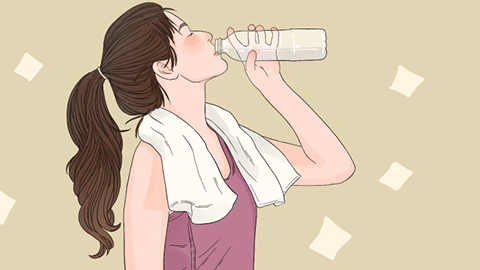What should I do if I develop excessive internal heat after eating lamb?
Eating lamb may cause "heatiness," which can be relieved by adjusting diet, increasing fluid intake, drinking heat-clearing beverages, improving sleep habits, and engaging in moderate exercise. These measures can help alleviate symptoms such as dry mouth, sore throat, and constipation. If severe oral ulcers, persistent constipation, or fever occur, it is advisable to seek medical attention promptly.
1. Adjust diet: Reduce intake of spicy and greasy foods. Increase consumption of cooling and moisturizing foods such as winter melon, cucumber, and pear. Avoid continuing to eat warming foods like lamb and dog meat to reduce internal heat.
2. Increase fluid intake: Drink 1500–2000 mL of warm water daily, in small amounts throughout the day. This promotes metabolism and helps eliminate excess heat and toxins from the body, relieving symptoms like dry mouth and dark yellow urine.

3. Drink heat-clearing beverages: Moderately consume chrysanthemum tea, honeysuckle tea, or monk fruit tea. These beverages help clear internal heat and reduce symptoms such as sore throat and swollen gums. Avoid sugary drinks.
4. Improve sleep habits: Ensure 7–8 hours of sleep each night and avoid staying up late. Nighttime is a critical period for the body to cool down and repair itself. Maintaining a regular sleep schedule helps regulate the body's yin-yang balance and reduces heatiness symptoms.
5. Engage in moderate exercise: Choose gentle activities such as walking or jogging for about 30 minutes per session. This promotes blood circulation and sweating, helping to release excess body heat and relieve discomfort associated with heatiness.
When eating lamb, pair it with cooling vegetables such as radish or bok choy, reduce portion size, and use fewer hot spices like chili peppers and Sichuan pepper during cooking. Avoid consuming large amounts at once to lower the risk of developing heatiness.




